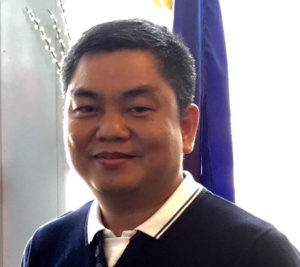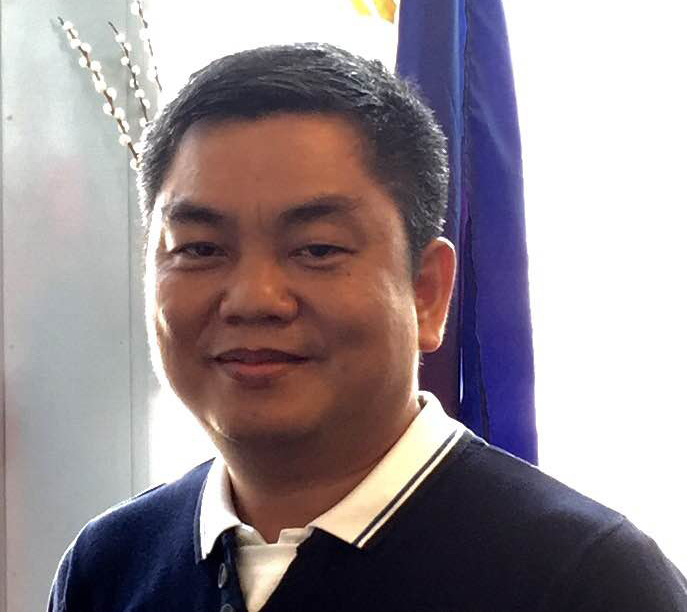 People are naturally averse to change yet change is inevitable. More often, we approach change with a combination of anticipation and dread. But what we really should do is to embrace change with excitement because of the opportunities it brings, and the prospect of the unknown.
People are naturally averse to change yet change is inevitable. More often, we approach change with a combination of anticipation and dread. But what we really should do is to embrace change with excitement because of the opportunities it brings, and the prospect of the unknown.
In an evolving trade environment where the Philippines is taking strides to be an active player, a pressing issue confronting the customs brokerage community is what the industry will look like in the future. There is also the debate on some provisions of the Customs Modernization and Tariff Act (CMTA) on the customs broker practice running counter to objectives of the Customs Broker Act of 2004. The CMTA is now a law and the challenge is how to embrace the change it brings and look for opportunities along the way.
Another issue facing the customs administration is how it can forge true partnership with the customs brokerage community. Each of the two sides have oftentimes viewed the other with trepidation. Just recently, the Bureau of Customs hinted at customs brokers aiding importers get around the law. While brokers have expressed concerns over some pronouncements that they might be sidelined from the trading process, I hope the industry association and the Customs Commissioner can have a dialogue that could strengthen the partnership.
Now more than ever, I believe in the huge value of the customs broker and the customs broker license. There is opportunity for majority in the customs broker industry to truly embrace technology and process improvement, adding more value to what customs brokers do. The academic preparations and the rigors of obtaining a broker license are right investments in the future as I see enormous opportunities ahead in trade.
The complexities of dealing with Customs in the areas of tariff classification, and the actual preparation, filing, and liquidation of customs entries are services that have long been provided by customs brokers. On top of these complexities are other regulations around special duties regime, import licenses and commodity control, free trade zone management, bonded warehouse management, country of origin declarations, and other nuanced programs and tasks that require a professional with specialized training – the customs broker. For a relatively modest fee, the importer outsources the handling of import processes to the customs broker. In the Philippines, the contracted services require the customs broker to be compliant with requirements of Customs and other regulatory agencies; this is part of the customs broker’s obligations as a licensed professional and in compliance with the Code of Ethics and Technical Standards.
Today, the customs broker industry is at a critical point in its evolution. In my opinion, progressing in the area of technology enhancement, global trade management, border control administration, etc. are key directions that could secure our industry’s relevance, and ensure we participate in the future of the Philippine economy.
I expect the full implementation of the CMTA to have a positive effect on the profession. Tighter and more consistent compliance, as a result of the new law, will enhance the value of the customs broker, both in knowledge and technology. Import processes in the Philippines are still segmented and who better to bring them together than the custom broker, especially those who are forward thinking and who take steps in enforcing a paperless environment, adding value to the process. These added values will help businesses become more streamlined and more efficient, translating to savings that may be invested in people development, customer support and quality control, all of which enhance the value of the customs broker.
Over the years, I have seen some customs brokerage businesses transcend the traditional role of customs clearance agents, becoming more sophisticated in the adoption of the import process design and regulatory compliance audit. Lately, business process outsourcing firms offering services related to import documentation, tariff classification and review, cargo manifest encoding and cleanup have been setting up operations in Manila and Cebu. This is one segment of the industry that requires the expertise and knowledge of customs broker. We should not only join the bandwagon but actually build tracks on which the trail is going. Yes, we can shape the future for the profession.
There are times when we customs brokers should take the lead in educating not only ourselves and our staff but also the trading community. Enhancing compliance requires that we disseminate information and provide sound advice to the sector we work with. Education is key and that’s a continuing process. Let’s not stop and continue to learn, learn and learn.
Change is the new norm and we should make change management a way of life. It may be difficult for some to adapt to change, but let’s remember what Benjamin Franklin said: “When you’re finished changing, you’re finished.”
***
The Philippine Association of Customs Brokers in Education or PACBE will tackle changes and challenges to the customs broker profession in a research conference dubbed “Building Stronger Bonds for Global Competitiveness” on September 30, 2016 at Vivere Hotel, Alabang, Muntinlupa City. Along with local experts in the industry, invited foreign speakers are: Mr. Robert Ireland, Head of the Research Unit of the World Customs Organization; Dr. Mikhail Kashubksy, Head of Secretarial of the International Network of Customs Universities and Prof. Akshay Pottathil, Director of CICS, San Diego State University. These speakers will be in Manila to attend the WCO PICARD MANILA 2016 Conference 27-29 September at the Manila Hotel.
To register for the PACBE conference, you may reach their President, Atty. Norberto Castillo at (63) 0917-892-8705 or (63) 0932-872-8705 or email pacbe.2013@yahoo.com.
Email the author at thecustomswiz@gmail.com. Follow him @thecustomswiz at Instagram and Twitter.



